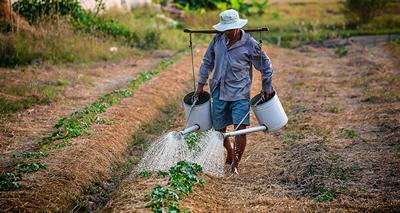Ambitious research to help achieve UN Sustainable Development Goals

SMMI member, Professor Robert Nicholls is part of a group of scientists from five countries who will research the relationship between humans and their environment in achieving the United Nations Sustainable Development Goals (SDGs).
In 2017 the National Environment Research Council (NERC) and the Economic & Social Research Council (ESRC) commissioned a report which found that understanding the multiple ways we, as humans, interact with and depend on the environment is essential to achieving the SDGs.
Now, a multilateral call between the UK, India, China, Japan and Sweden has resulted in a collective £4.3 million funding for eight two-year research projects placing human-environment interactions at the heart of achieving the UN global goals.
Professor Nicholls will lead a 2-year £750,000 project called 'Opportunities and trade-offs between the SDGs for food, welfare and the environment in deltas', as part of the NERC-led Towards a Sustainable Earth (TaSE) Programme working with Stockholm University and Jadavpur University, Kolkata India. The overall aim of the project is to analyse the common ground and conflicts between the Sustainability Development Goals in complex socio-ecological systems and explore the resulting opportunities and trade-offs for policy decision makers.
They will study the deltas as these illustrate the complex challenges of achieving the SDGs. Collectively, they are home to 500 million people who are often poor with a strong dependence on rural livelihoods. At the same time, they are subject to multiple drivers of change, such as climate change and sea-level rise, subsidence, extensive conversion of land from agriculture to aquaculture due to global seafood demand, and widespread migration and urbanisation. The resultant trade-offs, systemic shifts and critical thresholds in biophysical, economic or social dimensions are hard to foresee and often difficult to reverse.
The Ganga delta, West Bengal, India will be used as a case study. This is home to 18 million people and the project team has access to an extensive highly relevant base data for the site, available from the earlier DECCMA project. The Integrated Assessment Models (IAM) will be developed and applied to explore plausible futures, and impacts for the selected SDGs. This will include extensive participatory engagement with stakeholder and policymakers and consideration of plausible scenarios and a range of policy options.
